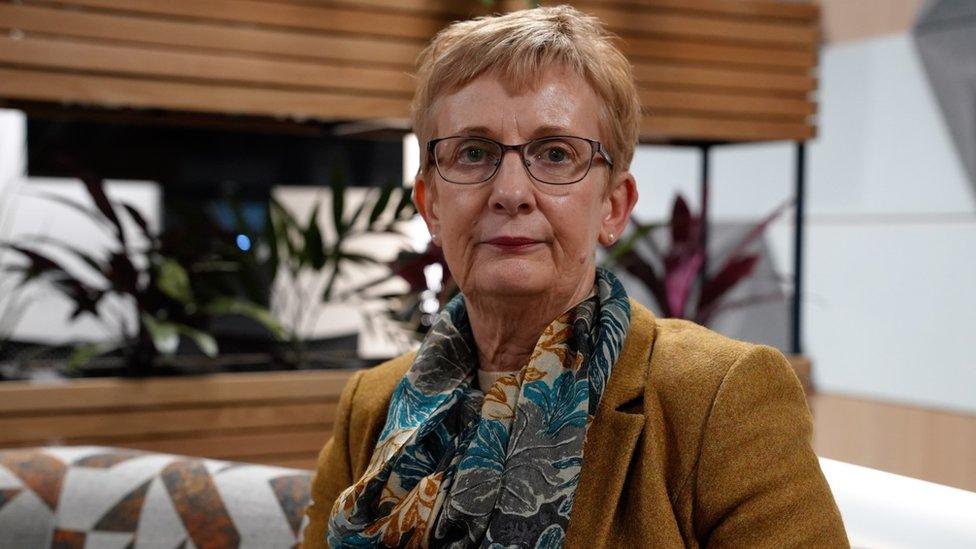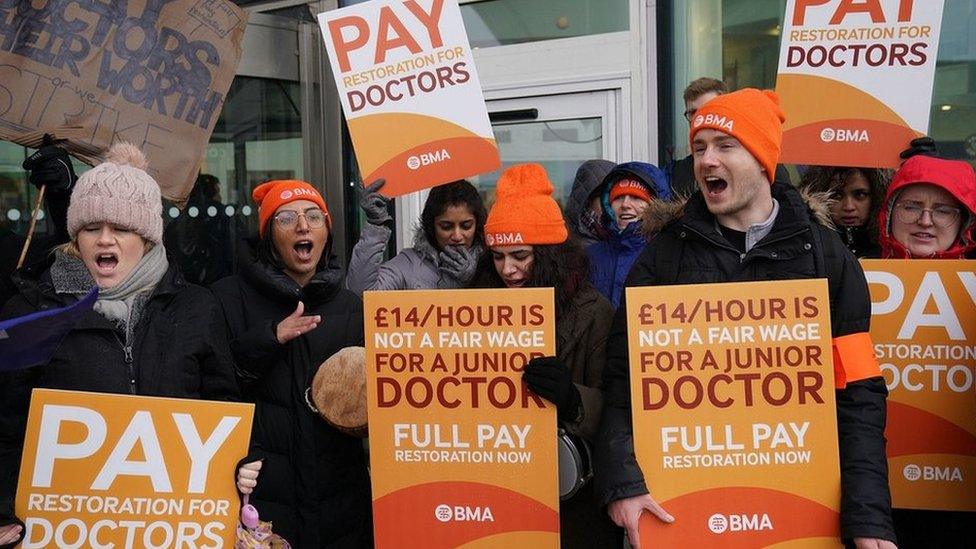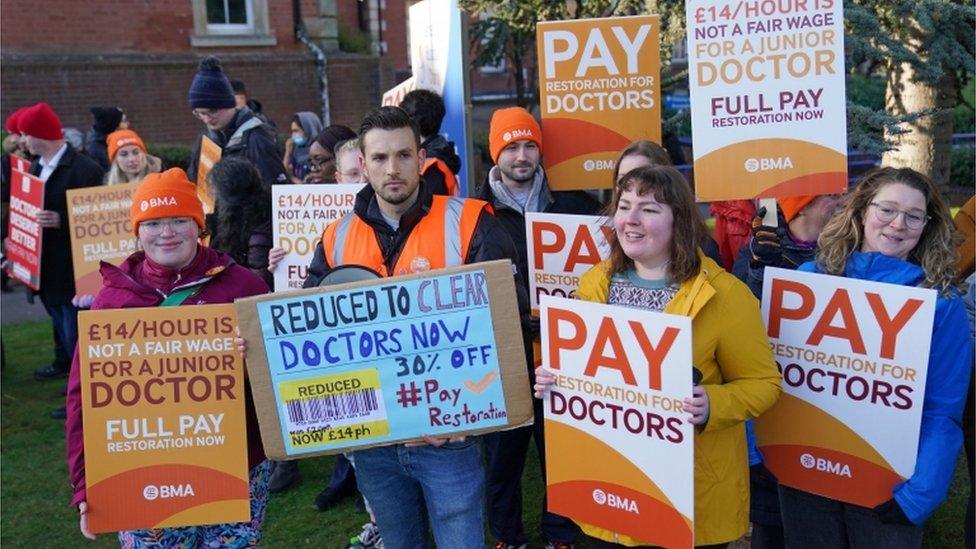NHS Wales head warns of junior doctors strike disruption
- Published

"It'd be very difficult for us to run services as normal," says NHS Wales head Judith Paget
NHS patients can expect a significant period of disruption when junior doctors strike for three days later in January, the head of the Welsh NHS has said.
Judith Paget said any non-emergency procedures would be cancelled over that period.
"It'd be very difficult for us to run services as normal," she added.
The strike will start at 07:00 GMT on Monday 15 January and continue until 07:00 on Thursday 18 January.
It could see more than 3,000 doctors withdraw their labour from hospitals and GP surgeries.
It comes as pressure on parts of the NHS has been as high in December as it was last year, when it saw its busiest day on record.
But Ms Paget said the service has coped because it has not seen a similar peak in winter illnesses.
She explained that extra capacity and bed space will have been used by hospitals across Wales to cope with those increased pressures.
That means the focus will turn to trying to discharge patients and relying on help from domiciliary care providers.
"I suspect that we will see an increase in Covid cases this month - the modelling data is suggesting that that will happen over the course of the next couple of weeks," said Ms Paget.

More than 3,000 junior doctors could withdraw their labour from 15-18 January
"And I don't think we've quite hit the peak of the flu yet which we probably might see in the next seven days.
"Then, of course, we'll be moving into the junior doctors strike the week after that, so the next three weeks for the NHS are still going to be a period of really high demand."
She sent her gratitude to the staff "who've been working so hard over Christmas and New Year," as well as to "patients who have actually helped us by taking those alternative choices".
At a time when health boards have also been given targets to reduce their overspend, Ms Paget described those plans as now being drawn up.
"They'll be looking seriously at how they might need to reconfigure their services, not simply because of financial issue but because it makes sense to do it in a different way," she said.
"We're looking at regional services as the solution for many of our areas where we need to concentrate our services in a single location."


- Published27 December 2023

- Published18 December 2023
